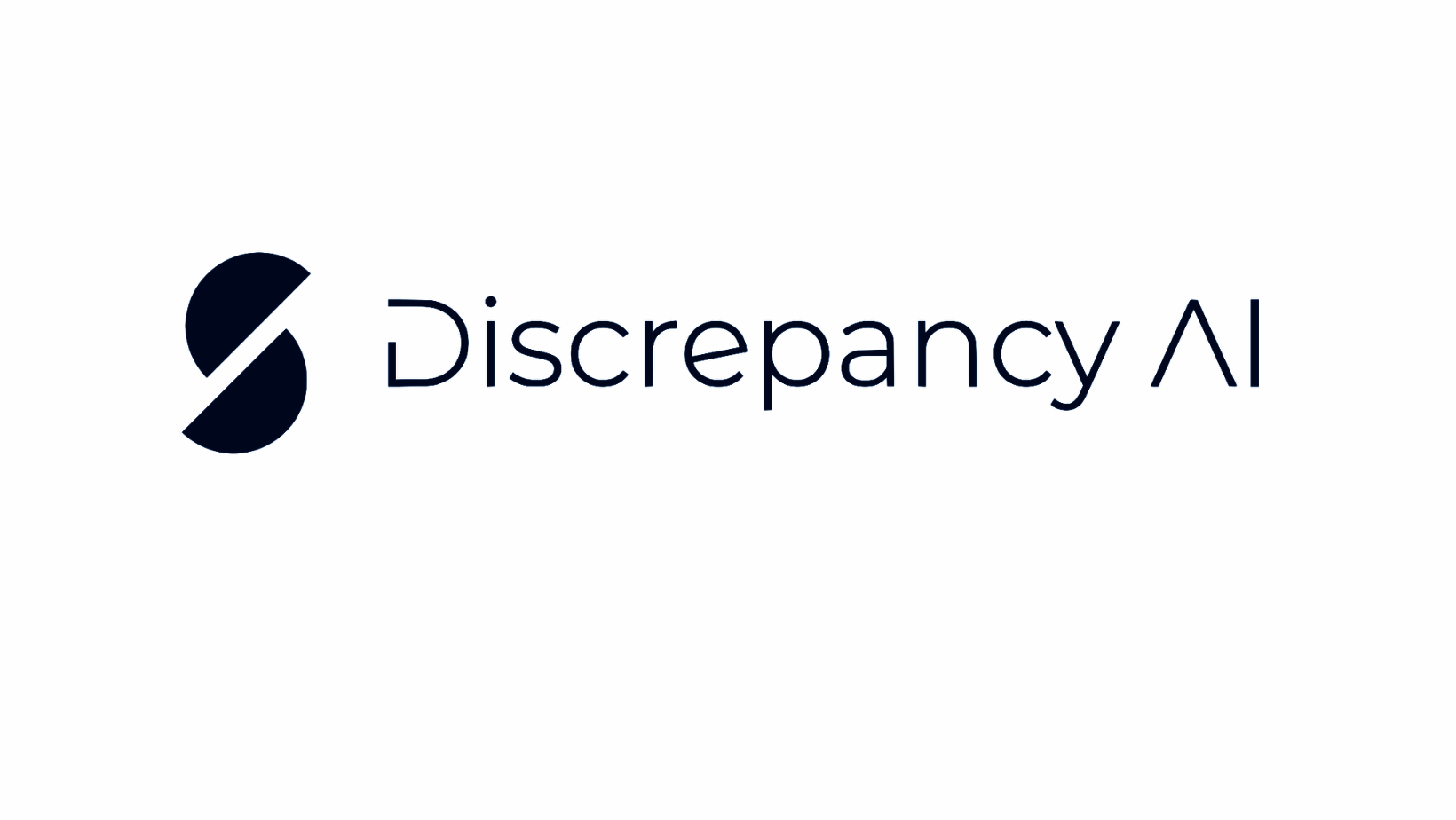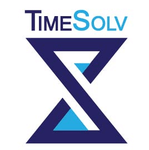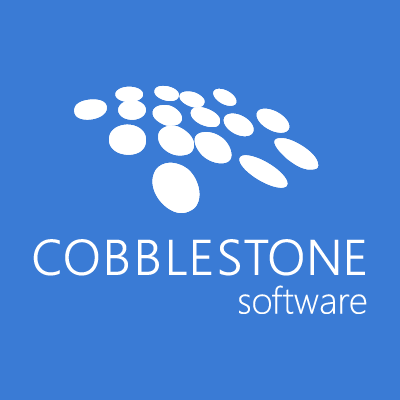Yes, legal document management software may be accessible from various devices and platforms. These applications are intended to work with a variety of devices, including laptops, desktops, smartphones, and tablets, and can be accessed via web browsers or specialized apps. This enables lawyers and legal professionals to access and manage their papers from any location and on any device, increasing ease and flexibility.
List of 20 Best Legal Document Management Software
Legal Suite solution for all your legal requirements. This comprehensive software streamlines legal procedures, enhances contract handling, and provides insightful reporting. It is trusted and utilized by leading experts, empowering legal teams to ef...Read More Legal Suite
AIQoD Intelligent Legal Document Digitization solution for efficiently accessing critical information related to terms and conditions in real-time. This software allows you to easily identify potential risks, payment deadlines, termination clauses, a...Read More AIQoD Intelligent Legal Document Digitization
Athennian is an advanced corporate secretarial software that provides a comprehensive suite of integrations to streamline your processes and ensure compliance with regulations. With a strong emphasis on security, your data remains protected during bo...Read More Athennian
SpotDraft is a contract management software that simplifies the entire contract process, from drafting to execution, in just a few minutes. By utilizing its cutting-edge technology, businesses can significantly reduce their contract lifecycles by up...Read More SpotDraft
Legistify is a legal management platform tailored for enterprise users. Our suite encompasses all aspects of law, from contracts and litigation to legal notices and intellectual property rights. Our modules can be personalized to suit your specific r...Read More Legistify
Firm Central is a business management solution designed exclusively for legal professionals. With its state-of-the-art automated workflow system and advanced tools, Firm Central streamlines project and client management, resulting in higher profits a...Read More Firm Central
Summize is the contract management tool that simplifies the process for legal teams and business professionals, no matter where they are located. Save time and increase productivity with Summizes intelligent and conversational features, making contra...Read More Summize
Logikcull is a eDiscovery software built for enterprises, law firms, and government agencies. This secure and user-friendly cloud-based platform offers complete control over the legal discovery process, with the convenience of mobile access. Featurin...Read More Logikcull
Lawrina is the Microsoft Word add-in that uses AI technology to revolutionize contract review and drafting. With a comprehensive set of features, Lawrina simplifies the entire contract process, making it ideal for legal professionals such as lawyers,...Read More Lawrina
Discrepancy AI is a software that harnesses the power of advanced artificial intelligence to identify discrepancies and errors in PDF legal documents. By conducting comprehensive reviews of contracts, files, and other important documents, this powerf...Read More Discrepancy AI
Insight Legal is a cloud-based software created for law firms in the UK and Ireland. Our platform simplifies legal accounting, ensures compliance, and enhances overall case management by utilizing intelligent workflows and automated billing. Experien...Read More Insight Legal
dMACQ DMS solution for your document and content management requirements. Our advanced platform simplifies and optimizes your document management process. dMACQ DMS allows you to centralize all your documents onto a single, robust platform, enabling...Read More dMACQ DMS
TimeSolv Legal Billing is a all-in-one solution for lawyers. With features like split billing, time tracking, integrated payments, and document management, this comprehensive software streamlines your billing process. Its advanced conflict check mana...Read More TimeSolv Legal Billing
PageLightPrime, the most comprehensive legal practice management software designed for Office 365. Effortlessly handle every aspect of your cases with cutting-edge features such as document assembly and management, leveraging the power of SharePoint...Read More PageLightPrime
Zegal is a legal tech platform designed to empower businesses. Since its inception in 2013, Zegal has been providing businesses with a seamless and hassle-free solution for creating customizable legal templates and electronically signing documents. W...Read More Zegal
At eFileCabinet, we offer a complete range of office management solutions and unparalleled support. With our robust software, you can enhance your business operations by easily capturing, storing, managing, sharing, and securing both physical and dig...Read More eFileCabinet
LegalGraph - a contract review software equipped with advanced AI technology to streamline the analysis of complex legal documents. By quickly extracting key information from lengthy agreements, LegalGraph empowers both legal and non-legal profession...Read More LegalGraph
PDFelement is a PDF editing solution that outshines Adobe. With Wondershare PDFelement, effortlessly edit graphics, experience enhanced OCR capabilities, and seamlessly open, read, and fill XFA-based forms. Say goodbye to complicated processes and ta...Read More PDFelement
CobbleStone Contract Insight is acontract lifecycle management solution developed by CobbleStone Software. Our CLM software is utilized by renowned organizations in various industries such as healthcare, pharmaceuticals, government, finance, educatio...Read More CobbleStone Contract Insight
SignWell is a electronic signature solution designed to revolutionize document signing processes. With top-notch security measures in place, our platform guarantees legally binding signatures while streamlining workflows through customizable template...Read More SignWell
Learn More About Legal Document Management Software
- What Is Legal Document Management Software?
- What Are The Recent Trends In Legal Document Management Software?
- Benefits Of Using Legal Document Management Software
- Important Factors To Consider While Purchasing Legal Document Management Software?
- What Are The Key Features To Look For In Legal Document Management Software?
- Why Do Businesses Need Legal Document Management Software?
- How Much Time Is Required To Implement Legal Document Management Software?
- What Is The Level Of Customization Available In Legal Document Management Software?
- Which Industries Can Benefit The Most From Legal Document Management Software?
- Conclusion
What Is Legal Document Management Software?
Legal document management software is a specialized program that automates and optimizes the processing of legal papers inside a law firm or legal department. It allows legal professionals to store, organize, and access critical documents in a single digital location, eliminating the need for physical files and paper-based procedures. This software offers document creation, version control, collaboration, search and retrieval, security, and other features that help users manage documents more efficiently.
With these characteristics, legal document management software may help ensure that papers are accurate, up to date, and easily accessible, hence enhancing the productivity and effectiveness of legal teams. One of the main advantages of legal document management software is its ability to automate repetitive operations and workflows. This saves time and reduces the likelihood of human error, allowing lawyers to focus on other critical tasks such as client representation and case strategy.
Furthermore, legal document management software can help build a secure and compliant environment for storing and managing sensitive legal documents. This is crucial for law firms and legal departments that handle extremely sensitive data and must follow strict industry regulations. Before investing in legal document management software, you should thoroughly consider your organization's specific needs and procedures. Look for features such as customizable metadata, integration with other legal software, and mobile access to ensure that the program meets your requirements and fits seamlessly into your existing workflow.
What Are The Recent Trends In Legal Document Management Software?
In recent years, the legal profession has undergone a digital transition, increasing the demand for efficient and effective document management systems. As a result, the legal document management software industry has experienced substantial growth and advancement, with new trends emerging to satisfy the changing needs of lawyers.
We'll look at the latest trends in legal document management software and how they might help your law office.
1. Cloud-Based Solutions: One of the most significant changes in legal document management software is the migration to cloud-based solutions. A cloud-based system allows legal documents to be accessed and handled from any location with an internet connection, facilitating collaboration and remote work. This improves productivity while simultaneously ensuring data security and disaster recovery.
2. Integration With Other Legal Software: Law firms frequently employ many software products to manage various elements of their operations. In recent years, legal document management software has begun to connect with other legal software, including practice management, billing, and eDiscovery applications. This interface streamlines procedures and removes the need for data duplication, resulting in increased efficiency and accuracy.
3. Artificial Intelligence: Artificial intelligence (AI) is making inroads into the legal sector, and document management software is no exception. AI-powered document management solutions can automatically sort and organize papers, saving lawyers time and effort. This system also provides enhanced search capabilities, lowering the time and resources required for document retrieval.
4. Mobile Accessibility: With the proliferation of remote work and the usage of mobile devices, legal document management software now provides mobile accessibility. This means lawyers may access and handle documents from their cellphones or tablets, making it easier to work on the move while being connected to the office.
5. Enhanced Security Features: Security is a significant consideration for law companies, and legal document management software is constantly changing to include more secure capabilities. These may include multi-factor authentication, data encryption, and access controls, which ensure that confidential and sensitive information is safe from cyber attacks.
6. User-Friendly Interfaces: Legal document management software is becoming more user-friendly, featuring intuitive interfaces and customized dashboards. This makes it easy for lawyers and workers to navigate the system and locate the information they require fast. Some software also includes task automation, which reduces the time spent on manual chores.
Benefits Of Using Legal Document Management Software
Legal document management software is an essential tool for law firms and legal departments that deal with a high volume of papers. It simplifies the process of document creation, management, and storage, making it an essential tool for any legal professional trying to increase efficiency and productivity. One of the primary advantages of adopting legal document management software is the ability to centralize and arrange all papers in a single secure area.
This eliminates the requirement for physical storage and lowers the likelihood of misplaced or lost papers. With all papers kept in a single database, the software allows for rapid and easy access to any document, saving time and effort. Furthermore, legal document management software automates document generation and revision procedures, lowering the possibility of human error while guaranteeing consistent formatting and branding.
This guarantees that all documents are correct, up to date, and professionally presented, hence increasing the organization's credibility and reputation. Another key benefit of adopting legal document management software is the strong security features. It supports access control and authorization settings, ensuring that sensitive documents are only accessible by authorized workers.
This decreases the likelihood of data breaches and keeps personal information safe and secure. Furthermore, with capabilities such as version control and document tracking, legal document management software allows for seamless collaboration and document sharing amongst team members. This encourages responsibility, openness, and improved communication inside the business.
In addition to these advantages, legal document management software includes document tracking and reporting features. It lets users to track a document's progress, establish deadlines, and produce document activity reports. This aids in assessing and increasing workflow efficiency, hence offering significant insights for process optimization.
Important Factors To Consider While Purchasing Legal Document Management Software?
When selecting legal document management software, there are several crucial elements to consider to guarantee that you get the best solution for your requirements.
Here are some crucial factors to consider during your search:
1. Understand Your Business Requirements: Before you begin looking at different software options, you must first establish your specific business objectives and goals. This will help you limit down your options and locate a solution that meets your needs.
2. Evaluate Features And Functionalities: Legal document management software includes document storage, version control, document collaboration, and security features. Make a list of the characteristics that are most important to your organization and compare them to several software options to find the best fit.
3. Consider User-Friendliness: The program should be simple to use for all team members, regardless of technical ability. Look for software that has an easy-to-use interface and provides training or support to help your team get started.
4. Look For Integration Capabilities: Your legal document management software should be able to work with other products and systems that your company utilizes. This will enable a smooth workflow and prevent data duplication or human entry problems.
5. Review Security Measures: Because legal papers contain sensitive and secret information, it is critical to select software that includes strong security features like as encryption, access controls, and data backup. This will secure your data from cyber threats while also ensuring compliance with industry requirements.
6. Consider Cloud-Based Vs. On-Premise: Determine if a cloud-based or on-premise solution is best for your firm. Cloud-based software provides accessibility and scalability, whilst on-premise software gives you greater control over your data.
7. Check For Cost And Scalability: Think about the software's pricing structure and whether it is scalable to meet your future business needs. To avoid surprises, keep an eye out for hidden prices, such as additional storage or user fees. By considering these aspects, you can make an informed selection and select a legal document management software that will expedite your document management operations, boost communication, and safeguard your sensitive data.
What Are The Key Features To Look For In Legal Document Management Software?
When selecting the best Legal Document Management Software (DMS), there are several critical features to consider that can significantly improve the efficacy and efficiency of your document management process.
Here are the top characteristics you should seek for in a trustworthy Legal DMS.
1. Advanced Security Measures: Because legal papers frequently contain sensitive and secret information, it is critical to select a DMS that has strong security features like encryption, access control, and audit trails to protect your company's data.
2. Document Indexing And Categorization: A decent DMS should allow you to effortlessly arrange and categorize your documents for quick retrieval. This includes metadata tagging, OCR (Optical Character Recognition) for searchable text, and user-defined directories and subfolders.
3. Collaboration And Accessibility: Look for a document management system that enables easy collaboration and document sharing among team members, as well as remote access from any device. This is especially crucial for law firms with several locations or remote personnel.
4. Integration With Other Software: The DMS should work easily with other important legal software, such as case management and billing systems, saving you time and effort when managing multiple programs.
5. Version Control And Tracking: Because legal documents are frequently revised and edited, it is vital to have a DMS that monitors all changes and retains a record of earlier versions.
6. Reporting And Analytics: Data-driven insights can help you optimize your document management process and pinpoint areas for development. Look for a DMS that has reporting and analytics features including document usage, storage, and access history.
7. Compliance With Industry Regulations: Legal organizations must follow a variety of regulations, including data protection laws, and it is critical to select a DMS that meets these requirements to avoid legal ramifications.
8. User-Friendly Interface: A user-friendly interface is critical for increasing the productivity of your document management workflow. Look for a DMS with a simple and intuitive interface that all team members can navigate and use.
Why Do Businesses Need Legal Document Management Software?
Businesses must constantly maintain legal paperwork in an effective and structured manner. With the ever-increasing number of legal paperwork, organizations must have a dependable system in place to store and retrieve vital legal papers. Here's where legal document management software comes into play. First and foremost, legal document management software provides firms with a centralized and safe area to keep all of their legal papers.
This avoids the possibility of essential documents becoming lost, misplaced, or damaged. These software also includes features like version control, access limitations, and audit trails to safeguard the integrity and security of your documents. Furthermore, legal document management software simplifies the document creation and editing processes. Businesses can save time and effort by using templates and using customisable forms when producing and modifying legal papers.
This also decreases the possibility of errors and guarantees consistency throughout the publications. Another significant advantage of legal document management software is the ease of retrieval of documents. Businesses can easily discover the precise documents they need thanks to advanced search tools and indexing, which eliminates the need to manually sift through heaps of data.
This saves firms considerable time and resources, allowing them to focus on more vital duties. Furthermore, legal document management software enables firms to comply with requirements and maintain compliance. These software frequently has built-in functions for tracking deadlines, setting reminders, and keeping track of document revisions. This ensures that firms meet their legal requirements and avoid any legal consequences.
How Much Time Is Required To Implement Legal Document Management Software?
The time necessary to deploy legal document management software varies based on several factors, including the size of your organization, the complexity of your document management requirements, and the type of software you select. Most legal document management software setups take between a few weeks and several months. This covers the time spent on program installation, data migration, training, and customization. Implementation may take only a few weeks for smaller organizations with minimal document management requirements.
However, larger organizations with more sophisticated requirements may take longer due to the necessity for further customization and user training. It's important to remember that the implementation process is critical for the successful adoption and use of legal documentation software. Rushing through the procedure can lead to mistakes and difficulties down the road. As a result, it is recommended that enough time and resources be set aside to ensure a seamless and effective deployment.
It is also worth noting that your team's preparation and adaptability to the new software can have an impact on the installation timeline. Proper training and support may greatly minimize the time and effort required to bring everyone up to speed. Overall, while the exact time necessary for implementation may vary, it is critical to carefully assess your firm's goals and preparation to guarantee a smooth transition to a legal document management system.
What Is The Level Of Customization Available In Legal Document Management Software?
Legal document management software offers numerous customization possibilities to meet the individual demands and workflows of law firms, corporate legal departments, and other legal entities. This level of customization differs across software alternatives, so purchasers must grasp the various possibilities and select the one that best matches their needs. Customization is essential for document organization and tagging.
Users of legal document management software can establish custom tags, folders, and subfolders to arrange documents in the way that best suits their practice. This enables the rapid and easy retrieval of critical documents, minimizing the time and effort required for document management operations. Document templates are another example of customization.
Legal document management software frequently includes a library of templates for commonly used legal documents including contracts, briefs, and pleadings. Buyers can also design their own bespoke document templates to ensure uniformity and speed throughout document creation. Legal document management software also allows for extensive customization of document indexing and search functionality.
Users can add custom fields and tags to documents, making it easier to search and retrieve specific information in big document databases. This can help you save time and effort when doing legal research or preparing for a case. Workflow automation is another customization option that can considerably help legal organizations. Users can use customizable workflows to automate common processes like document approval, routing, and deadline tracking.
This not only improves document management operations, but it also helps to assure compliance with legal deadlines and procedures. In addition to customization options, legal document management software may provide several degrees of access and permissions. This gives you control over who can see, change, or delete documents, keeping critical legal information secure.
Overall, legal document management software offers a high level of customization, allowing customers to adjust the software to their individual requirements and workflows. Buyers should thoroughly evaluate their needs and compare the customization options of various software options to choose the best fit for their firm.
Which Industries Can Benefit The Most From Legal Document Management Software?
In today's fast-paced business world, effective handling of legal papers is critical for businesses of all sizes. Legal Document Management Software (LDMS) is a vital tool that can help firms save time and dollars by improving document management operations. But which industries will profit the most from deploying LDMS?
We'll look at the top industries that can benefit the most from using LDMS.
1. Law Firms: It goes without saying that law firms handle a large number of legal documents on a daily basis. Organizing and managing legal paperwork can be difficult when there are tight deadlines, several clients, and complex issues involved. LDMS provides legal firms with a centralized platform for securely storing, tracking, and accessing all of their documents, lowering the risk of data loss or misplacement. Furthermore, LDMS has capabilities like version control, document collaboration, and secure client portals, making it an essential tool for law firms.
2. Healthcare: In the healthcare profession, patient confidentiality and adherence to tight laws are critical. LDMS enables healthcare facilities to manage sensitive patient records, such as medical histories, prescriptions, and insurance information, while being HIPAA compliant. Healthcare personnel may swiftly retrieve patient information using extensive search and indexing capabilities, allowing them to provide timely and correct care. LDMS also simplifies the process of sharing documents with insurance companies, lowering administrative burdens and increasing efficiency.
3. Financial Services: Financial institutions handle a vast number of sensitive papers, including loan agreements, contracts, and investment portfolios. LDMS helps financial organizations optimize their document workflows, boosting accuracy and lowering the risk of errors. Financial firms can assure regulatory compliance and document integrity by implementing features such as audit trails and permissions-based access. LDMS also helps teams collaborate more effectively and securely.
4. Governmental Institutions: Government entities handle a large volume of legal documentation, including contracts, permits, court filings, and reports. LDMS provides a secure and orderly mechanism for government institutions to store, manage, and share documents. With strong security features and user permissions, LDMS protects confidential government information and restricts access to authorized persons. It also makes it easier to share documents with other government departments, saving time and money on document management.
5. Real Estate: Real estate firms are in charge of managing a large number of papers, including property deeds, sales contracts, and mortgage agreements. LDMS allows real estate businesses to digitally store and manage these papers, removing the requirement for physical storage and lowering the risk of lost or damaged material. With automated processes and e-signature features, LDMS simplifies the process of acquiring multiple parties' signatures and approvals, making document management more efficient and transparent.
Conclusion
Finally, selecting the appropriate legal document management software for your company can significantly improve its efficiency and production. Given the diversity of possibilities on the market, it is critical to carefully consider your needs, budget, and desired features before making a purchase. Consider document organization, collaboration possibilities, security features, and software integrations.
Additionally, choose a trusted provider with a proven track record of customer satisfaction and dependable customer service. By following these suggestions, you can confidently choose legal document management software that suits your specific needs and streamlines your workflow. Remember that investing in a great document management solution can result in considerable long-term benefits for your company.
Legal Document Management Software FAQ's
Can Legal Document Management Software Be Accessed Across Multiple Devices And Platforms?
Is Legal Document Management Software Future-Proof And Adaptable To Emerging Technologies Like AI, Blockchain Or IoT?
Legal document management software is intended to be future-proof and adaptable to new technologies. With the rapid evolution of technology, legal document management software is continually upgraded to include new features and functionalities like AI, blockchain, and IoT.
This keeps the software current and efficient, allowing legal professionals to streamline their document management operations in a quickly changing digital context. As a result, investing in legal document management software is a wise and forward-thinking move for law firms and departments.
Is There A Free Trial Offered To Assess Legal Document Management Software Before Committing?
Yes, many legal document management software companies provide a free trial or sample period so that users can evaluate the program before committing. This enables users to try the features and interface to see if they meet their individual requirements and preferences. It is always advisable to take advantage of a free trial offer to confirm that the software is a good fit for your company before purchasing.
Does Legal Document Management Software Offer Data Security Features And Meet Regulatory Compliance Standards?
Yes, legal document management software has strong data security measures and complies with regulatory norms. These include enhanced encryption to safeguard sensitive data, user authorization and access control to prevent illegal access, and regular data backups for disaster recovery. Furthermore, the program adheres to regulatory requirements such as HIPAA, GDPR, and CCPA, assuring the confidentiality and integrity of your legal records.
Can Legal Document Management Software Integrate Seamlessly With Existing Tools And Platforms?
Yes, most legal document management software integrates seamlessly with existing tools and platforms, including Microsoft Office, Dropbox, and Google Drive. This facilitates the importing, exporting, and exchange of documents between systems. Furthermore, some software connects with case management systems and other legal software to provide a more complete solution. This aids in optimizing workflow and enhancing efficiency in document management procedures.






















